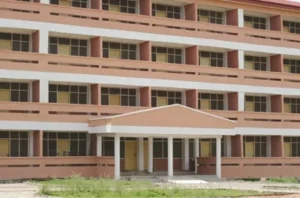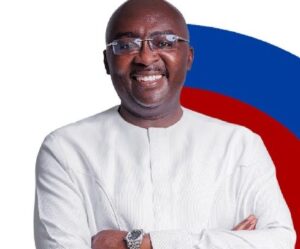
Senyo Kpelly, Chief Executive Officer of Savannah & Sahel Commodities, is calling for Ghana’s proposed 24-hour economy to be reimagined as a “24-hour circular economy,” warning that simply increasing operational hours without structural reform could worsen inefficiencies and environmental degradation.
Kpelly emphasized that expanding to a round-the-clock economy must be coupled with sustainability principles such as waste reduction, resource reuse, and ecosystem protection. “Extending the economy without rethinking how it functions could mean doubling our existing problems,” he said.
He pointed to critical issues like post-harvest losses, revealing that more than half of Ghana’s fresh produce goes to waste before reaching consumers. Simultaneously, the country spends approximately $155 million on synthetic fertilizer imports while exporting organic materials like poultry manure—an imbalance he described as “economically counterproductive.”
To address these inefficiencies, Kpelly advocated integrating waste management systems, renewable energy, and modern transportation into the 24-hour model. He recommended linking regional capitals by rail to reduce road congestion and proposed scheduling production during daylight hours while recycling and transporting at night, powered by renewable sources such as solar energy.
He also proposed adopting a 10-year national circular economy plan with measurable goals, including recycling 70% of plastic waste by 2035. “In a circular economy, waste from one industry becomes input for another. That’s how we lower farm input costs and become globally competitive,” he explained.
Highlighting soil health as a foundation for youth involvement in agriculture, Kpelly warned against overreliance on synthetic inputs. “Destroy the soil, and you destroy the future of farming. A smart farmer must understand soil,” he said.
He concluded by calling for inclusive dialogue among policymakers, academics, and the private sector to create a unified vision for sustainable economic growth. His remarks reflect an increasing acknowledgment that economic advancement in developing countries must align with environmental stewardship and efficient resource management.
FAQs: 24-Hour Circular Economy Proposal by Senyo Kpelly
1. What is a 24-hour circular economy?
A 24-hour circular economy combines round-the-clock economic activity with sustainable practices such as waste minimization, recycling, and renewable energy use. It ensures continuous productivity without harming the environment.
2. Why is Senyo Kpelly against a traditional 24-hour economy?
He believes that simply extending working hours without fixing systemic issues will worsen waste, inefficiency, and environmental degradation.
3. What key problems did Kpelly highlight in Ghana’s current system?
-
Over 50% of fresh produce is lost before reaching consumers.
-
The country imports synthetic fertilizers while exporting valuable organic waste.
-
Lack of efficient transportation and waste processing infrastructure.
4. What solutions did he propose?
-
Adopt a circular model focused on zero waste and sustainability.
-
Integrate waste management, bioenergy, and efficient transport (like rail systems).
-
Use solar energy for processing during the day and recycling or transporting at night.
5. What long-term goals were suggested?
Kpelly recommended a 10-year national strategy with clear targets—such as recycling 70% of plastic waste by 2035.
6. How would this benefit farmers and youth in agriculture?
By turning waste into usable resources (like compost), input costs would decrease. He also emphasized that protecting soil health is key to attracting the youth to modern farming.
7. Who should be involved in implementing this circular economy?
Government, academia, and private sector stakeholders should collaborate to design and implement the national circular strategy.





